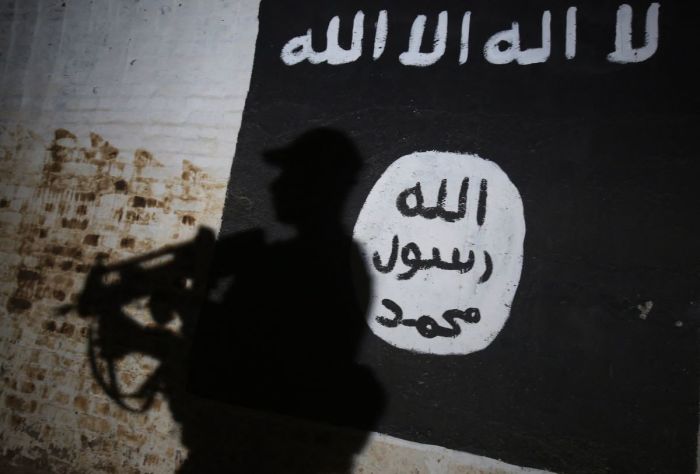
The Islamic State terror organization continues to pose a significant global threat, adapting to military setbacks by leveraging technology, propaganda and regional instability, a United Nations expert told the U.N. Security Council last week.
The terror group's ability to reorganize and exploit new tools has enabled it to retain influence across several continents even after its military defeat in Iraq and Syria last decade.
Vladimir Voronkov, under-secretary-general of the U.N. Office of Counter-Terrorism, remarked at Wednesday's briefing that the Islamic State, also known as ISIS, ISIL or Da'esh, has shown "volatility and complexity" in its operations, particularly in Africa, Syria and Afghanistan, where it continues to rebuild its operational strength despite counter-terrorism campaigns.
Islamic State affiliates remain active in several regions, including the Sahel, West Africa and Lake Chad Basin, with Africa now accounting for over half of the world's deaths from terrorist attacks.
"Africa remains significantly affected, currently experiencing the highest intensity of Da'esh activity globally. The situation in West Africa and the Sahel remains particularly urgent," Voronkov said. "During the reporting period, a resurgence in the activity of Islamic State in the Greater Sahara was observed, while Islamic State West Africa Province emerged as a prolific producer of terrorist propaganda and attracted foreign terrorist fighters, primarily from within the region."
Recent arrests in Libya uncovered logistics and financing networks with links to the Sahel region of Africa, Voronkov added, indicating a cross-border infrastructure supporting the Islamic State's presence in the region.
In Somalia, the group launched a major attack in Puntland, anticipating an upcoming military counteroffensive. The assault involved foreign fighters, but Somali security forces killed about 200 militants and arrested more than 150 during the response, according to Voronkov. The Islamic State's presence in Somalia remains supported by regional networks, and the group continues to operate in weakened form, suggesting the need for sustained pressure to prevent resurgence.
In Iraq and Syria, where the Islamic State controlled swaths of territory and established a so-called caliphate beginning in 2014, jihadis are attempting to rebuild the group's capabilities, focusing on the Badia desert in Syria's northwest and aiming to destabilize local authorities.
The expert noted ongoing covert operations and exploitation of sectarian divisions, saying that the Islamic State had benefited from gaps in security following the overthrow of President Bashar al-Assad last December and takeover by Hay'at Tahrir al-Sham in parts of Syria.
Voronkov said there was no sign that the March 2025 killing of a deputy Islamic State leader in Iraq, who was responsible for operational planning, would significantly disrupt the group's operations. Intelligence suggested the group could recover from such losses within six months.
Regional diplomats and officials from Syria, Iraq, the U.S. and Europe told Reuters earlier this summer that the Islamic State appears to be making a comeback and reactivating fighters in the Middle East after its territorial defeat in 2017.
Sources say IS shifted personnel from remote desert areas to urban centers like Deir al-Zor, Hasakah and Kirkuk and has targeted oil facilities and vulnerable infrastructure, according to the Straight Arrow News. Sleeper cells have reemerged in these cities, taking advantage of scaled-down coalition patrols in eastern Syria.
The Critical Threats Project at the Washington think tank American Enterprise Institute stated in a January report that the Islamic State has "gradually rebuilt its capabilities since 2022 in the central Syrian desert — where regime forces infrequently and ineffectively patrolled — and gradually infiltrated then-regime-held towns along the Euphrates River."
In Afghanistan, the Islamic State Khorasan Province, or IS-K, was described as one of the "most serious threats" to Central Asia and beyond. Voronkov said the group has targeted civilians, minorities and foreign nationals, while exploiting public dissatisfaction with Afghanistan's de facto authorities.
Natalia Gherman, executive director of the Counter-Terrorism Committee Executive Directorate, told the Associated Press that IS-K is deploying "propaganda tactics and online campaigns" aimed at recruitment and fundraising across Central Asia and Europe.
Gherman warned that the group's use of advanced technology has introduced new threats.
"Its ability to adapt and exploit instability continues to pose significant challenges," she said, pointing to its experimentation with artificial intelligence, use of encrypted messaging platforms and abuse of crowdfunding systems.
The expert highlighted the group's recruitment efforts targeting individuals with cybersecurity expertise, as well as its attempts to integrate artificial intelligence into propaganda production and operational planning.
The humanitarian situation in detention camps in northeast Syria was identified as a serious concern.
Voronkov said tens of thousands of people, mostly women and children, were held under "unsafe and undignified conditions" that posed risks of radicalization. The under secretary-general renewed his call for the safe, voluntary and dignified repatriation of detainees, particularly children, in accordance with international law.
Voronkov reiterated that long-term solutions addressing the drivers of terrorism are more effective than solely targeting group leadership. He also called for larger stakeholder participation in counter-terrorism efforts, including governments and regional organizations, referencing a June 2025 retreat held by the U.N. Global Counter-Terrorism Coordination Compact.
News Source : https://www.christianpost.com/news/isis-remains-a-complex-threat-as-it-adapts-un-expert-warn.html
 Your post is being uploaded. Please don't close or refresh the page.
Your post is being uploaded. Please don't close or refresh the page.





